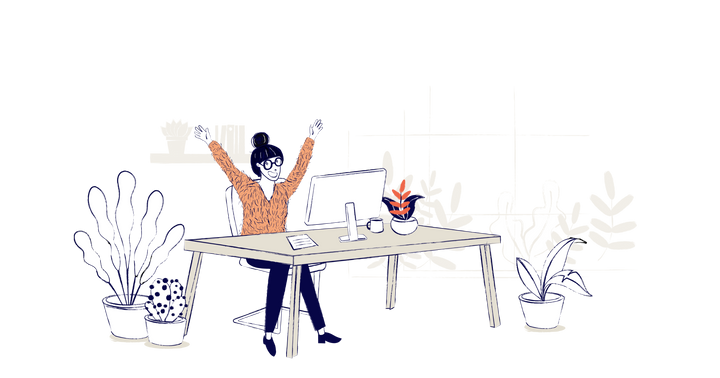Why The “Great Resignation” Can Yield More Conscious Cultures

By almost any available metric, we’re living through an unprecedented shift in work culture—or rather, a culture in which the idea of work itself is being questioned anew. There are statistics, of course: employment rolls and their monthly ups and downs; Bureau of Labor Statistics data about who is and isn’t work; job boards in which countless thousands of open positions go unfilled.
But for the most interesting data on how work has changed, we ought to look to the “front door of the internet”: Reddit. Because there a subreddit called r/antiwork emerged, as a space to radically rethink everything about work. It is one of Reddit’s most popular hubs of activity, and it has swelled to almost 2 million subscribers.
And what do those subscribers come for? To talk about worker’s rights, awful bosses, union organizing, and student debt. But more broadly, they are tapping into a cultural rethink about how it is that we all embraced and accepted that work had to be rough-and-tumble. These Redditors are pushing back on pay secrecy, awful work conditions, and much else that afflicts modern work culture.
Taking a step back
Sure, some of the posts on r/antiwork are just gripes and venting. But there is a deeper cultural current at play here. One popular post posed the central question: “Imagine if we lived in a society that genuinely valued the labor of all people. What would that look like?”.
It’s a powerful question—but for us, it operates not at the abstract level of society but at the level of individual companies and businesses. What if companies valued the labor, time, and emotional health of their employees? What would that look like?
At Conscious Culture, that’s one of our abiding missions: to actually challenge us to think about the way work is organized and how it could be improved.
Take, for example, the mere existence of a 5-day workweek. Around the world, companies are challenging the notion that Monday to Friday from 9 to 5 is the ideal schedule. Countless experiments with shorter work weeks or flexible hours have illustrated that what we think about as “the standard work week” might need rethinking.
And that isn’t a rethink just limited to knowledge work either. Consider the example of a pest control company in New York that shifted to a four day work week—with some success. As their Director of Employee Experience put it, “As we’ve kind of gone through the pandemic and there’s been importance not only on mental health but on time at home, and developing personally, we said that the four-day was a great option…It gives them more time to be home with their families or have doctor’s appointments that are so hard to get during the week.”
Conscious Culture embraces the idea of a shorter, four-day workweek, and actively encourages our Conscious Companies to take a step back and reconsider what a working schedule can look like to them.
Talent will have a choice
As these kinds of changes bubble up, there’s a natural outcome: talent will go where talent is valued. And because companies face an employment market in which filling jobs is harder than ever, they will have to do more to recruit and retain top talent. That means not just using the traditional levers of compensation and equity but also thinking about work environment, culture, and hours.
To put it more simply: for talent, this is a buyer’s market. They can leave companies who will grind them into the ground, and end up as r/antiwork posts, and move to companies who are being thoughtful about the relationship between work and life. They can avoid those firms with vicious Glassdoor reviews—and select for those who prioritize things like paid family leave, generous benefits, or a principled culture.
From one angle, the fact that so many workers are leaving the workforce might be the best thing to ever happen to the workforce, as it will force companies to up their game in areas too easily ignored.
Ask yourself: How does your firm handle everything from illness to paid time off to employee conflict? Are they living their values? Do they even have values? If not, there may be greener pastures. Job openings have hit record highs in late 2021 and early 2022, and that trend shows no signs of slowing down.
Companies will have a choice, too—improve, or else
Just as talent has more options than ever, companies have more tools than ever before to improve their cultures. At Conscious, one of the things we’ve tried to do is borrow and share the best available material on company culture.
By curating and broadcasting examples of how the best cultures in the work are operating—we hope that all of us can become more conscious in our execution.
Bridging execution with humanity isn’t just a question of perks like time off and higher pay. Part of conscious.org’s mission is to share examples of how companies give better feedback, or how to keep standards high but fair. We aren’t “anti-work”—we’re “pro-conscious work.” There’s a difference: Just as talent doesn’t want to be mistreated, talented people also want to be surrounded by high achievers who push and challenge them.
But because that talent now has bargaining power, companies will have to be more explicit about what they stand for and how they work. One place to start: Defining your values. Not just as an internal exercise (though that’s important!), but as something you can codify and share with prospective recruits, and embed within the working lives of existing employees. A set of foundational values can be a powerful conversation starter—and it can be one more tool in your toolkit for winning over top talent, in a market in which every tool counts.




